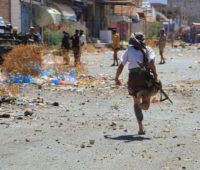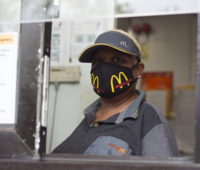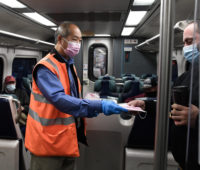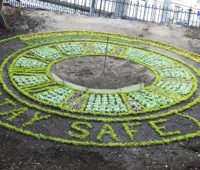For the “Covid-19 and the Social Sciences” series, Adam Baczko and Gilles Dorronsoro argue for the necessity of resuming fieldwork. They trace how subcontracting research or shifting to methodologies which are remote in time and space—solutions often touted in the pandemic age—in fact produce unreliable, exploitative, and undertheorized work incapable of accurately analyzing dynamic conditions on the ground. These transformations relate to broader research trends toward neoliberal privatization, and the authors outline how they can be resisted by returning, carefully, to the field.
Starting with SSRC president Alondra Nelson’s reflections on “Society after Pandemic,” this series of essays explores the human, social, political, and ethical dimensions of Covid-19. These pieces call attention to how social research can shed light on the short- and long-term effects of the pandemic and what can be done to improve responses, both now and in the future.
The publication of this series would not be possible if not for the help of the following SSRC staff:
Juni Ahari, communications and editorial assistant.
Cole Edick, program associate, Anxieties of Democracy and Media & Democracy programs.
Carrie Hamilton, program assistant, Social Data Initiative and Media & Democracy program.
Saarah Jappie, program officer, Transregional Collaboratory on the Indian Ocean.
Michelle Lee, program assistant, International Dissertation Research Fellowship.
Line Sidonie Talla Mafotsing, communications and editorial assistant, African Peacebuilding Network and Next Generation Social Sciences in Africa.
Daniella Sarnoff, program director, International Dissertation Research Fellowship.
Catherine Weddig, program assistant, Social Data Initiative and Media & Democracy program.
Themes
Essays

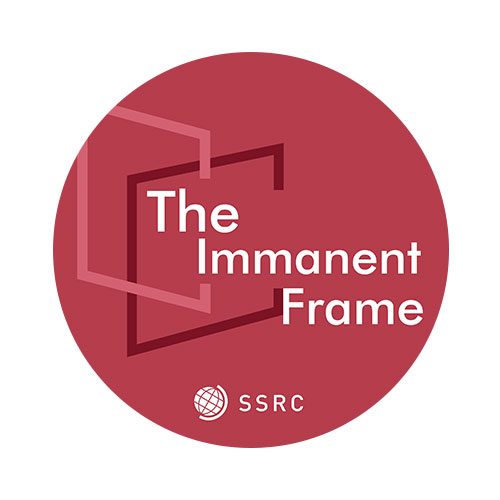
Presence and Contagion
by Matthew J. CresslerIf scholars define Catholicism by its sacramentality, its commitment to an embodied encounter with the divine in real time, what even is Catholicism in an age of social distance during a global pandemic? This question emerged this semester as I’ve tried to teach Catholicism in America in the weird approximation of a classroom that is the masked, six-feet-of-separation seminar.

Covid-19: A Closer Look at Emerging Trends in Africa
by Oluchi AgbanyimAs of September 8, 2020, seven months after the first Covid-19 case was officially reported in Africa on February 14, 2020, Africa Centres for Disease Control and Prevention (Africa CDC) reports show that the entire continent recorded 1,306,157 cases, with 31,494 deaths. These are thousands of deaths too many, but a far cry from the catastrophe analysts and health professionals had projected in relation to the continent. When the number of new coronavirus cases began to spike globally in March, gloomy predictions expected that Africa would become the epicenter of the pandemic. The reasons were obvious; foremost among them were the weak health-care systems in most countries on the continent. However, six months later, compared to cases and figures from other regions of the world, Africa continues to defy all these pessimistic predictions, a trend that requires critical examination for explanatory and other purposes.

“The Supply Chain Must Continue”: Becoming Essential in the Pandemic Emergency
by Andrew LakoffWhile many analyses have focused on the human-level health and economic impacts on essential workers themselves, Andrew Lakoff examines how the emergence of structural policies to “secure the supply chain” in times of disaster and public health crises created new categories of workers, and therefore of risk. In spite of the sense of urgency that emerged in the 2000s around the need to prepare for a global pandemic, the resulting guidance put forward in response to Covid-19 allowed for the social classification of essential workers to be subject to significant industry lobbying, with little regard to health and safety protections for those workers.
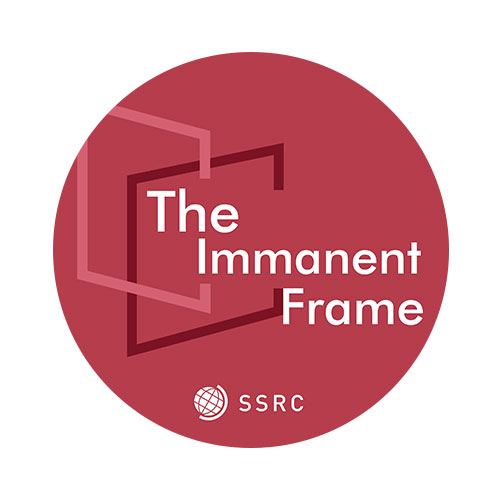
The Pandemic and New Muslim Publics
by Faizah Zakaria“This pandemic is the best time to get married and the worst time to pass away,” my father summed up in August 2020 at the end of a week when my parents attended a Muslim wedding and a relative’s funeral. Both community events were severely curtailed as Covid-19 ran its course in Singapore, where reopenings have been cautious and penalties for infractions severe. Wedding parties of up to one-hundred persons were permitted only in October 2020, doubling the number of people allowed from when restrictions were initially eased in August. My father’s varying sentiments toward these everyday gatherings of co-religionists attest to the ways in which Muslim responses to coronavirus restrictions have mutated notions of community.

Immigrant Communities in the Covid-19 Pandemic: Old and New Insights on Mobility, Bordering Regimes, and Social Inequality
by Heide Castañeda and William D. LopezHeide Castañeda and William D. Lopez explore historical connections and future impacts of the pandemic on border management and human mobility. Focusing on immigrants in the United States, the authors show how in addition to limitations on their movements, punitive policies enacted in the past year have further reduced healthcare access for undocumented migrants and their mixed-status families, while pandemic-fueled anti-immigrant discourse has further marginalized these groups.

The Future after the Covid-19 Pandemic: Remote Work in South Africa
by Sherihan RadiOn the 11th of March, 2020, Covid-19 was declared a pandemic by the World Health Organization (WHO). Since then, Covid-19 has upturned the whole world. One of the transformations linked to the pandemic is the nature and future of work. As a result of lockdowns and social distancing guidelines meant to prevent the spread of Covid-19, remote forms of working became a necessity aimed at protecting employees’ health and safety. However, the nature of work during the current pandemic, the trajectory of which remains at best uncertain until an effective vaccine can be mass-produced and made available, varies from one country to another.
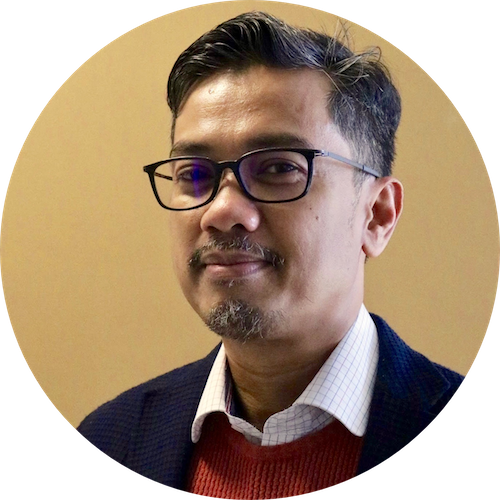
Hidden Vulnerability and Inequality: The Covid-19 Pandemic in Singapore
by Sulfikar AmirTaking a closer look at Singapore’s much lauded response to the pandemic, Sulfikar Amir’s contribution to the “Covid-19 and the Social Sciences” series bring an important lens to the much-discussed question within disaster studies of how to evaluate resilience. In particular, the author shows the need to examine hidden vulnerabilities and inequalities in a society’s response to disaster, such as the treatment of migrant workers. While it is apparent that the government of Singapore learned important lessons from the response to the SARS outbreak in 2003, Amir shows that even with strong preparedness practices, governments may be prone to overlook marginalized groups within their jurisdictions, and that such blind spots have serious consequences.

What Pessimistic Takes on Americans’ Willingness to Fight Covid-19 Get Wrong
by John SidesIn this contribution to “Covid-19 and the Social Sciences” series, John Sides interrogates the common assumption that Americans’ love of freedom and anti-authoritarian streak is behind resistance to enacting public health measures to fight Covid-19. Beyond the fact that significant majorities of Americans support and follow these measures, Sides also examines the role that political leaders play in shaping the views of those who resist behavior change. This is especially the case among some (but not all) Republicans given the messages from President Trump and party leaders.

(Disaster) Utopian Moments in the Pandemic: A European Perspective
by Daniel F. Lorenz and Cordula DittmerDaniel F. Lorenz and Cordula Dittmer explore the sometimes-contradictory nature of postdisaster solidarity. Drawing on examples from the European context, they draw out the significant contribution context makes to utopian coming-together during pandemic lockdowns, reflecting on the experiences of those who are affected by these policies, but not primarily by illness itself. Even as the pandemic and its accompanying policies may create feelings of togetherness, especially among social equals with the necessary socioeconomic resources to manage limits on their mobility, more research will be necessary to understand whether these social phenomena can contribute to sustainable social change.

